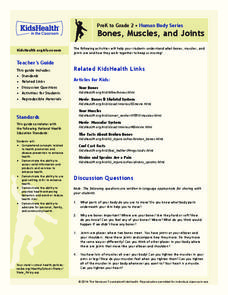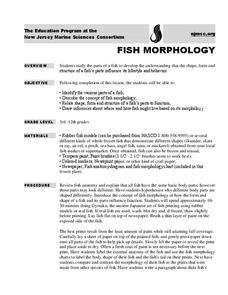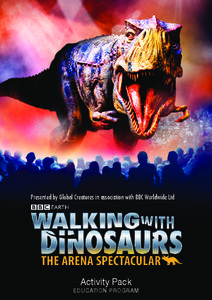Curated OER
Cell, Socks, and Sex
Donate old socks for science! Young biologists model mitosis and meiosis, using socks as chromosomes and a balloon as a nucleus. This ingenious idea for modeling cell division will be more memorable to your young biologists than any set...
Curated OER
Jack and The Beanstalk Estimation
Introduce the day's lesson by reading Jack and The Beanstalk by Richard Walker, and then review the concept of area with your class. We don't always need rulers to measure, though! Teach learners how to use their hands to help us measure...
Curated OER
The Present Tense (Part 1)
This resource examines the present tense through several mediums. The information covered includes: regular present tense verbs, stem-changing present tense verbs, irregular present tense verbs, and use of the present tense. Included is...
Achievement Strategies
CCSS Unpacked Learning Targets for Reading and Writing History/Social Studies
How do all the lessons and activities you have planned for your class align to Common Core State Standards? This can feel like a very daunting question. Help ease the process by referencing a template that not only lists and...
NOAA
Into the Deep
Take young scientists into the depths of the world's ocean with the second lesson of this three-part earth science series. After first drawing pictures representing how they imagine the bottom of the ocean to appear, young scholars...
Curated OER
Mini-Lesson Planning for Inferences
Making inferences and drawing conclusions is a key component to successful active reading. Encourage your class to use context clues and prior knowledge to infer different elements of a story, including the setting, plot, and character...
Maryland Department of Education
The Concept of Diversity in World Literature Lesson 8: Nonfiction Close Reading
As part of their study of Things Fall Apart, class members conduct a close reading of a section of Chinua Achebe's essay, "An Image of Africa: Racism in Conrad's Heart of Darkness." Jigsaw groups then compare the voice in the essay...
Maryland Department of Education
The Concept of Diversity in World Literature Lesson 1: Unit Introduction
To launch a unit study of the concept of diversity in World Literature, class members compare Chinua Achebe's essay, "An Image of Africa: Racism in Conrad's Heart of Darkness" and Richard Rodriguez's essay, "The Chinese in All of...
Maryland Department of Education
The Concept of Diversity in World Literature Lesson 4: Proverbs
"Eneke the bird says since men have learnt to shoot without missing, he has learnt to fly without perching." As part of their study of Things Fall Apart, class members read Paul Hernadi and Francis Steen's essay, "The Tropical Landscapes...
National Nanotechnology Infrastructure Network
Understanding Wave Motion - Slinky vs. Snaky: Which Spring is Dominant?
Ride the wave to an understanding of refraction! The first in a series of two inquiry-based lessons challenges learners to create transverse waves with two different types of springs. As their wave hits an object, they observe the change...
Curated OER
Buffalo Hide Paintings
To the Native American people living on the plains, the buffalo represented culture, art, sustenance, and survival. Explore the history of the buffalo with a social studies activity, in which learners create a buffalo hide painting in...
Science Friday
Fossil Detectives
What can this rock be? Pupils pretend to be paleontologists by sketching fossils and making predictions about their types. To determine whether they can identify the type of dinosaur, class members compare their observations and...
Santiago Canyon College
Taking Notes for Science Class
Provide young scholars with the tools they need to succeed with this reference on the Cornell note-taking strategy. By breaking the content of lessons into main ideas, supporting details, and overall summaries, students are...
Center for Learning in Action
Water – Changing States (Part 2)
Here is part two of a two-part lesson in which scholars investigate the changing states of water—liquid, solid, and gas—and how energy from heat changes its molecules. With grand conversation, two demonstrations, and one hands-on...
Columbus City Schools
What is Up Th-air? — Atmosphere
Air, air, everywhere, but what's in it, and what makes Earth's air so unique and special? Journey through the layers above us to uncover our atmosphere's composition and how it works to make life possible below. Pupils conduct...
NOAA
Plate Tectonics I
Young geologists get a glimpse beneath the earth's surface in this plate tectonics investigation. After first learning about the different layers of the earth and the constant movement of its plates, young...
NASA
Foam Rocket
When going for distance, does it make a difference at what angle you launch the rocket? Teams of three launch foam rockets, varying the launch angle and determining how far they flew. After conducting the series of flights three times,...
Nemours KidsHealth
Bones, Muscles, and Joints
What is the hip bone connected to? Learn about body parts and the human skeleton with a game of Simon Says, skeleton puzzle, and five question quiz.
Howard Hughes Medical Institute
Lesson 2: Gorongosa National Park
How has Gorongosa National Park changed over time? Discover the park's rich history, dating back to primitive human times, through an interactive timeline and scientific reading. The second installment in an eight-part series explores...
Scholastic
Perfect Postcards: California
It's time to hear about some adventures in travel! The Transcontinental Railroad changed life and travel in the United States during the 1800s. Practicing online research skills, pupils discover the features they would like to visit on...
Curated OER
Express Yourself Lesson Seed 14: Dedication
Connect Martin Luther King Jr's famous speech, "I Have a Dream," to The Cay by Theodore Taylor. Taylor refers to the speech in his dedication, which creates a natural segue into talking about the speech and how it relates to the novel....
Consortium for Ocean Science Exploration and Engagement (COSEE)
Fish Morphology
Life comes in all different shapes and sizes, and fish are no exception. Here, young scientists create fish prints as they learn how specific characteristics allow different species to survive in their particular habitats.
BBC
Walking with Dinosaurs
Breath new life into your class's study of dinosaurs with this extensive collection of materials. Offering everything from a printable T-rex mask, word searches, and connect-the-dots activities to informational handouts, hands-on...
Maryland Department of Education
The Concept of Identity Lesson 5: Motivation - Maslow's Hierarchy of Needs
Maslow's Hierarchy of Needs provides the lens class members use to analyze and evaluate the motivations of the characters in Sylvia Plath's "Initiation" and scenes from Mean Girls. Readers then select a character from A...























